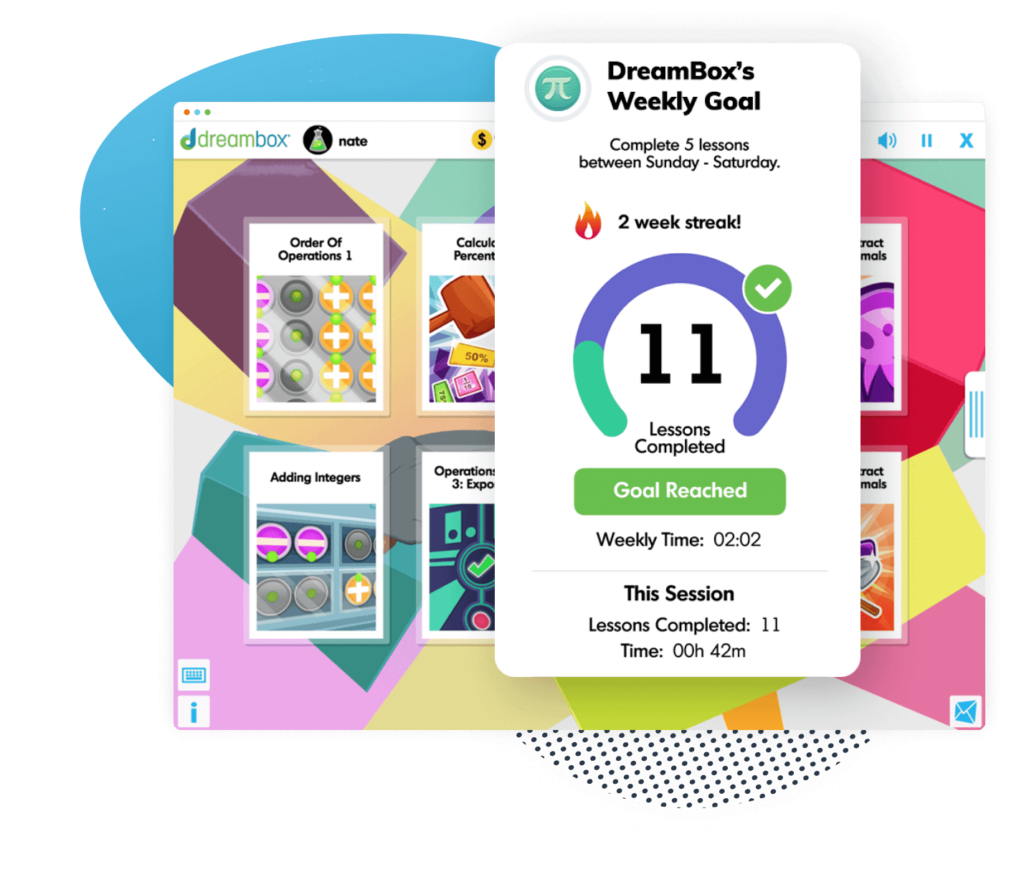How to prepare for kindergarten
Ready, set, kindergarten! Preparing your child for kindergarten is made easier with these tips from a mom of two and former elementary school teacher.

Author
Katie Wickliff
Published:
June 2025
Key takeaways
- • Children start kindergarten at different stages of development, and that’s totally normal
- • Helping your child with social, emotional, and behavior skills will set them up for success in kindergarten
- • It’s helpful for children to be familiar with academic concepts they’ll learn in kindergarten, but they don’t need to have them mastered
Ready, set, kindergarten! This is an exciting milestone in a child’s life, and children arrive at school with different levels of readiness. For example, one child might be working on identifying letters of the alphabet, while another might be reading simple words and sentences. Some might transition to full-time school easily, while others might have difficulty giving up an afternoon nap. Regardless of their individual needs, starting kindergarten is a big change for children and their families, so you might be wondering how to prepare your child for this new experience. Luckily, we’ve covered everything from social-emotional readiness to kindergarten-friendly routines. Let’s get started!
What Does “Kindergarten Readiness” Really Mean?
Social and Emotional Readiness
Here are 4 tips to help your child with social, emotional, and behavioral skills they’ll need in kindergarten:
1. Practice Listening and Following Directions
Kindergarteners must follow many instructions, so practice this skill at home in fun ways. For example, the classic game “Simon Says” requires kids to listen carefully and repeat the right action at the right time. Begin with simple instructions to help build your child’s confidence, then gradually increase the challenge as they grow more comfortable. Play games or do crafts with one or two-step instructions. Kids often love to help out in the kitchen, so cooking with your kindergartener is also a great way to practice listening and following directions.
2. Encourage Appropriate Social Skills and Nurture Friendships
Help your rising kindergartener learn to make friends by giving them plenty of opportunities to practice interacting with other kids. Meeting another child at a playground is a great way to begin– both kids may find it easier to play together on neutral territory. Help your child learn to wait patiently by playing active games such as Duck, Duck, Goose. It’s a great choice to get kids moving as they practice waiting their turn, paying attention, and cheering on their friends.
3. Develop Independence and Self-Care Skills
Encourage your child to dress themselves and use the bathroom (including flushing the toilet and washing their hands!) independently. These skills take time to master, so practicing regularly is important! Make sure to allow extra time for your child to build these new routines. For example, when my son was going into kindergarten, I realized that rushing him to put on his coat and shoes was just leading to frustration for both of us! Eventually, I started planning extra time for him to get ready independently.
4. Practice Asking for Help
Developing independence is essential, but so is asking for help. After all, advocating for oneself is a lifelong skill. Encourage your child to practice asking for help when they feel very frustrated. This will help build their confidence as they enter school.
Table of contents
Strengthen your math skills with DreamBox
Kindergarten Math Resources
See how DreamBox can help your kindergartener with math.
Academic Readiness for Kindergarten
In addition to helping your child prepare for kindergarten’s social, emotional, and behavioral aspects, it’s a good idea to practice some of the skills your child will learn in the classroom, such as identifying colors, counting, or writing their name.
However, please don’t worry if your child hasn’t mastered these skills by the time school begins. Simply being familiar with these concepts can help boost your child’s confidence in the kindergarten classroom. Below are seven concepts your kindergartener will explore during their kindergarten year.
Language and Literacy
1. Identify the Alphabet
Children can learn to identify letters through experiments, exploration, music, and play. They also become more familiar with the alphabet by looking at books and being read to.
2. Develop a “Pincer Grip”
Practice “pincer grip” by laying a pencil flat in front of your child with the point facing them. Have them pinch the pencil and flip it back toward them with the eraser going over their hand. Then help rest the pencil on their middle finger. This one takes lots of practice, but they’ll get there!
3. Write their Name
Tracing is a great way to help your child learn to write their first and last name– try having them trace their name over a highlighter, with sidewalk chalk, or with finger paint!
Kindergarten Math
4. Have Fun Counting
Kindergarteners are expected to learn to count to 10, and daily life provides many counting opportunities! Count LEGO bricks, chocolate chips, coins, or any other interesting objects.
5. Practice Classifying Objects
In kindergarten math, children will learn to group objects by size, pattern, color, or shape. Give them a head start by sorting, matching, or grouping some of their favorite toys or snacks.
6. Identify Basic Colors.
Break out the art supplies and get creative! Point out the different colors in a crayon box, finger paint the rainbow, and look for opportunities to identify colors around your home.
7. Play Fun Math Games
There are tons of math activities and games that kindergarteners love, such as Feed the Woozle or Sum Swamp. Also, be sure to check out Dreambox Math. This interactive online math program is full of exciting games that teach kids important math skills while having fun!

The math program that drives results
Get started today!
DreamBox adapts to your child’s level and learning needs, ensuring they are appropriately challenged and get confidence-building wins.
Establish a Kindergarten-Friendly Routine
Routines help kids feel safe and confident because they can anticipate what will happen next. Establish a kindergarten-friendly routine with these three tips:
1. Create Consistent Bedtimes and Morning Habits
Creating consistent bedtime and morning routines helps your rising kindergartener feel well-rested, secure, and ready to learn. A calming evening routine might be dinner at a predictable time, a bath, and a song or story. In the mornings, waking up around the same time will set a calm tone for the day ahead.
2. Phase Out Naps
Kindergarten is a long day for every child, but if your child is used to mid-day naps, now might be the time to phase them out. Start slowly and know that it’s ok if your child takes time to adjust to the full days. Most kindergarten teachers expect that their students are going to be tired and often plan for a rest period.
3. Reduce Screen Time
If your child is used to having a lot of screen time during the day, it may make it harder for them to transition to a (mostly) device-free day of kindergarten. Too much time on screens can impact sleep, attention span, and social development, so slowly cut back on screentime and replace it with other fun activities, like reading, arts and crafts, or extra trips to the playground!
Navigating the Emotional Transition into Kindergarten
Starting kindergarten is a big step for both parents and children, and it’s ok to feel excited, apprehensive, nostalgic, and anxious all at once! Here are a few more ways for you and your child to navigate this transition together.
1. Plan a Classroom Visit
Many schools offer a “meet the teacher” classroom visit before the first day of school. These visits help kids feel comfortable seeing the classroom before the first day. Transitions made my young son very anxious, so we actually did classroom visits for kindergarten, 1st, and 2nd grades!
2. Read Together
Reading to your child often helps set the foundation for success in kindergarten and beyond. Many books help kids learn important social-emotional skills like kindness, sharing, manners, and building friendships. Many books deal with the first day of kindergarten jitters. Here are some of our favorite books to share with your almost-kindergartener:
- How Do Dinosaurs Learn to Be Kind?
- Wemberly Worried
- The Pigeon HAS to Go to School!
- All Are Welcome
- The Kissing Hand
Remember, every child adjusts at their own pace. Some may run into the classroom on the first day, while others may have a hard time separating from their caregivers. Some may feel comfortable diving into academics, while others might feel more apprehensive. Every experience is “normal!” After all, kindergarten is a huge step, filled with new experiences, expectations, and routines.
FAQs about preparing for kindergarten
Parents and caregivers can help their child prepare by focusing on social, emotional, and behavioral skills to ease the transition into kindergarten. Introducing children to some of the academic skills they’ll learn in kindergarten, such as writing, counting, or identifying shapes and colors, will help them feel comfortable and confident.
Before starting school, a 5-year-old should be able to perform basic self-care tasks like using the bathroom, washing their hands, and putting on their shoes and jackets. They should practice following directions, taking their turn, and sitting for short periods. and be able to follow simple routines. Practicing identifying numbers, colors, and letters is also a great start.
While there are many ways to prepare your child for the first day of kindergarten, reading books about characters starting school is a great way for children to understand that the characters are experiencing similar situations and emotions. Making these connections can help calm nerves and build confidence.
If your 5-year-old is not ready for kindergarten, try not to worry. There are several options available for children who may need a little extra support before starting full-time school. The best thing to do is to talk with their preschool teacher, daycare provider, or pediatrician to understand your child’s unique needs and determine the best path.
Take at home math practice to the next level
Empowering parents and educators to make math practice more impactful. Plus, your kids will love it.


About the Author
Katie Wickliff
Katie holds a master’s degree in Education, has over 15 years of education experience as a primary classroom teacher, and is Orton-Gillingham certified tutor. Most importantly, Katie is the mother of two primary school students, ages 8 and 11. She is passionate about maths education and firmly believes that the right tools and support will help every student reach their full potential.